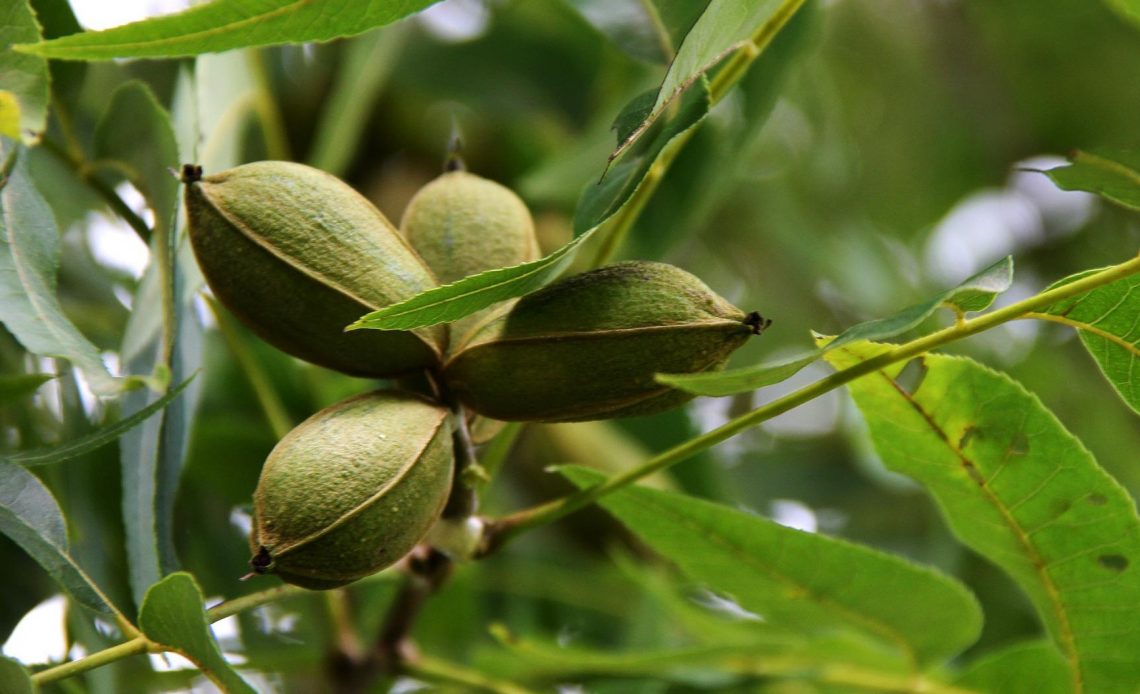

We’re here to help! Wild Yards is a completely free website that is 100% dedicated to helping you create a wildlife-friendly, sustainable yard. Read more
WildYards is reader-supported. When you buy a product through a link on our site, we may earn a comission. Every product is independently selected by our (obsessive) editors and our reviews are unbiased and objective. Read more about our mission or our privacy policy.
Pecans are popular with a variety of animals – meaning it’s only reasonable to assume that leaving some in our gardens might attract some wonderful wildlife! But when it comes to the bigger animals in our local habitats, you may wonder – do deer eat pecans?
Deer will eat pecans, though not out of preference. They are not too fond of their green outer skins when they fall from trees, nor their leaves. While many of us usually think of deer when we notice our pecans missing, it is, in fact, more likely a different animal that has had a feast or two.
Will deer eat pecans in my yard?
Deer will probably avoid pecans you grow or leave out in your yard if the shells are still in place. Generally, deer have evolved to avoid nuts with shells that are tough to crack – it’s a reason why deer dislike walnuts, for example. Did you know that deer won’t always eat hickory nuts because of their toughness to crack?
Pecans can be fantastic for providing nutrients to deer when they need them the most, however, they will probably only chow down if they find dried-out pecan nuts in the wild.
That said, deer won’t avoid nuts altogether. There are other nuts that deer show a preference for, so it’s a good idea to place pecans fairly low on the hierarchy!
What nuts do deer like most?
Deer tend to show a preference for softer-shelled, more widely available nuts in their local forest habitats. For example, they are known to love munching on beechnuts, acorns, and even peanuts. However, be wary – as peanuts can prove to be fairly unhealthy for deer to eat on the whole. They will also eat hickory nuts if there is little option otherwise.
Acorns are high on the average deer’s menu, and deer love oak trees for their extensive cover. Therefore, if you have the space and time to grow these trees from scratch, you have instant deer attractant ready to go.
Given the choice, if you have a feeding plot replete with pecans, acorns, and walnuts, you’re only likely to see your acorns disappear. That is, of course, unless other animals have chosen to feast on your pecans instead!
What animals like to eat pecans?
Animals such as squirrels, birds, possums, raccoons, mice, and even wild hogs can commonly be found eating pecans in their local habitats. Therefore, don’t be too quick to blame the local deer if you start noticing pecans getting eaten up without due notice!
To better prevent animals from eating your pecans – if you wish to stop them – consider building a fence or a wall around your pecan trees and plants. These trees can grow quite tall, and will often drop pecans with abandon – so be sure to enclose the whole area if you want to keep them safe from wild feasting.
In fact, deer are just as likely to eat twigs and bark falling from your pecan trees as they are the pecans themselves! Their rumen digestive systems – which help them break down specific food – means that they have quite particular tastes. However, deer will eat pretty much anything if they have no other option.
What do deer love to eat the most?
Deer love the sweet tastes of most fruits, as well as their moisture and scent. Berries tend to be their favorites, though deer will eat oranges, apples, bananas, and even watermelon. You’ll even find that deer happily munch on most citrus fruits beyond orange, too – meaning the advice that citrus scents deter deer from gardens is largely unproven.
When it comes to vegetables, deer tend to be a little pickier as they do not like having to dig for roots, and they do not like strong-smelling crops such as garlic and onions. Instead, deer prefer eating celery, pumpkins, and peas – anything slightly sweet, or even dull tasting, will likely appeal to deer.
They are unlikely to munch away at any plants that have slightly fuzzy, thorny, or even awkward leaves or stems. Crucially, the average deer is looking for a quick, simple dinner that will sustain them in the event of needing to escape predators.
Remember, never feed deer in winter directly. Their digestive patterns change from season to season, and what deer eat in summer may not be easy to process in the colder months. Ruminant diets are fascinating!
Several states outlaw feeding deer outright – so if you want to bring deer to your yard, check your local legislation before you get started.
